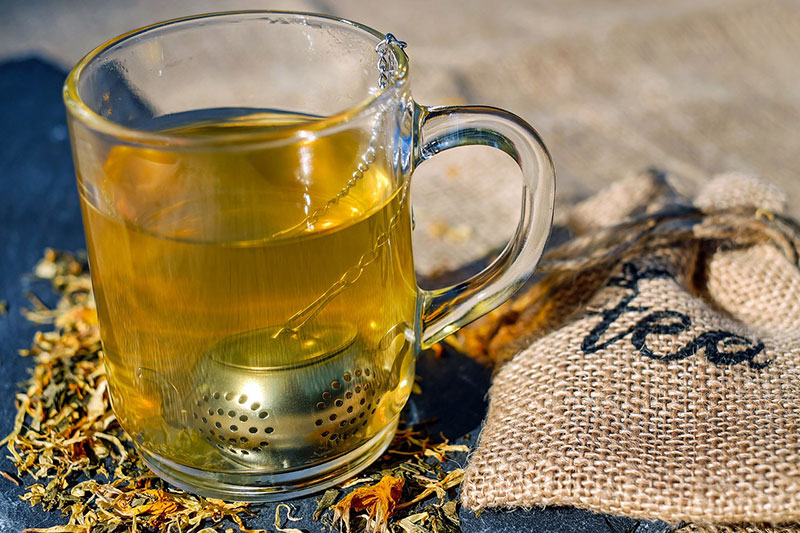With so much information and changing recommendations during the Corona virus outbreak, it may feel that some things may not be as safe as they used to be. We hear new recommendations almost daily, and it may cause confusion on which products are safe and which are not.
Should the coronavirus outbreak change your tea drinking habits? Yes, in some way, but avoiding tea is not one of them.
Is tea safe during the Corona virus outbreak?
Yes, tea is completely safe. Coronavirus is transmitted mainly from person to person via droplets[1]. Although there are still uncertainties if the virus can spread only through the air or how high is the possibility of getting infected by touching surfaces, online shopping is by far the safest:
- Tea bought online will not be touched, coughed at or sneezed at by other people. Meaning, the tea you buy from an online shop will be packaged at one location, usually a warehouse with a restricted access to anyone except employees.
- Under the current circumstances, packages may arrive with delay. So far it looks like the coronavirus may stay on surfaces from a few hours to several days – one day on cardboard, and two or three days on plastic. This means, by the time your package arrives, it is very unlikely the packaging inside would be unsafe.
- Loose leaf tea leaves are safe. All tea was and is handled and packaged with strict hygiene practices in place – even before the Coronavirus outbreak.
- Food that has to be cooked or boiled should pose no threat. In fact, FDA reports there have been no cases of coronavirus infection through food or food packaging[2] or drinking water[3].

Steps to keep extra safe
If you want to be extra safe, you can do the following:
- Throw away the cardboard box your tea arrived in. You can even take out the tea from its original packaging and store it in tea containers. However, there have been no cases of contamination through postal packaging.
- You can wipe the tea packaging to, but it is very unlikely it contains any viruses at all.
- Some teas are traditionally brewed by washing the leaves first – such as oolong or pu’erh tea. This is done for a few reasons, and one of them is to remove any possible dust or other impurities. Simply pour hot water over the tea leaves, let it steep for a few seconds, and discard the brew. The next infusion is ready for drinking. You don’t need to do this step with all teas.
- Do not share your cups or mugs with others. Now is the time to be selfish about your teaware.
- Always wash teaware before and after the brewing. In fact, this should be a common step at any time, not only to prevent the coronavirus infection. If you want to be extra safe, avoid using teaware that can’t be washed with detergents–such as purple clay teapots.
Can tea help prevent the coronavirus infection?
There has been certain information circling the net on how tea may help prevent the infection or kill the new coronavirus. However, it’s important to say that the virus is new, and hasn’t been researched enough yet. The statements that green tea may kill the virus came from two Chinese studies. One concluded that polyphenols in green tea managed to destroy the coronavirus, while the other said that theobromine and caffeine were responsible for killing the virus. However, it’s important to know that such claims are still not scientifically backed up. Even if tea could help destroy the coronavirus, it would need to be under specific conditions with the correct dosage.
However, without any doubts, tea is a healthy drink[4]. It may help boost immune system, give you a daily dose of antioxidants and help reduce or prevent many health problems such as Alzheimer’s disease, diabetes, cancer and heart diseases.[5], Besides, you would be replacing an unhealthy habit of drinking sugary drinks with a healthy one. Many scientists agree – to fully benefits from drinking tea, you should try to drink it daily, up to several cups[6], and combine it with a healthy lifestyle including exercise and healthy diet.
Coronavirus outbreak may be a great excuse to create a good, healthy and relaxing habit of daily tea drinking. Even better, make it a mindfulness ritual. Teas rich in L-theanine, an amino acid that may provide a calming effect, may help to relax, boost overall energy without causing the jitters and promote the mental health[7]. Which teas are rich in L-theanine? Many green teas and white teas, especially matcha green tea powder.
Disclaimer: This article does not replace a professional medical advice.
Sources:
[1] https://www.hopkinsmedicine.org/health/conditions-and-diseases/coronavirus
[2] https://www.fda.gov/food/food-safety-during-emergencies/food-safety-and-coronavirus-disease-2019-covid-19
[3] https://www.cdc.gov/coronavirus/2019-ncov/daily-life-coping/food-and-COVID-19.html
[4] https://www.health.harvard.edu/staying-healthy/tea-a-cup-of-good-health
[5] https://www.ncbi.nlm.nih.gov/pmc/articles/PMC4055352/



Leave a Reply Cancel Reply